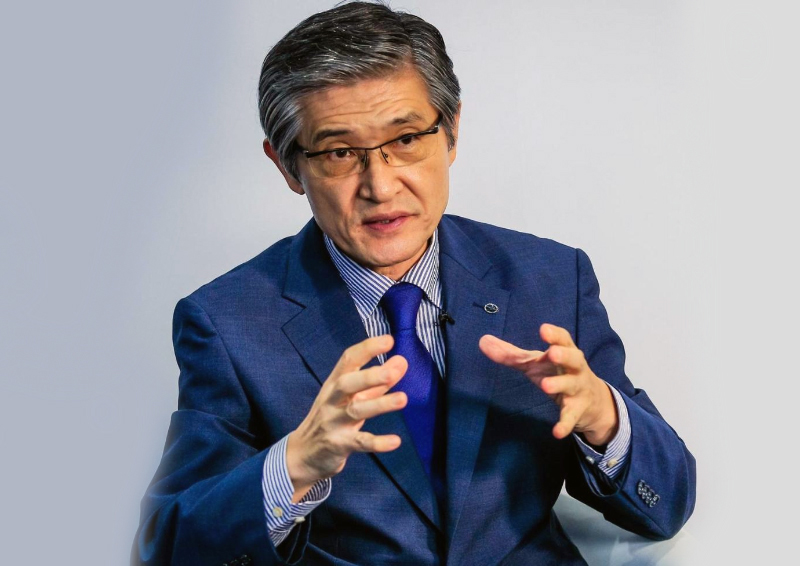[Dialogue] ‘Nobody will be free from the responsibility’

Mr. Rae Kwon Chung, Nobel Prize laureate and Chairman of the Global Energy International Award Committee. Photo: Russian Science Festival (festivalnauki.ru).
The world is moving towards carbon neutrality, but the speed of this movement is flip-flopping. On the eve of the “Nobel Vision. Open Innovations 2.0” Forum, the major Russia’s event on the world’s future and innovations that change it, Mr. Rae Kwon Chung, the former principal advisor on climate change to the Secretary-General of the UN, told Pan Pacific Agency why is it so easy to change the climate for the worse and so hard – for the better.
Five years passed between the Paris Agreement and the Glasgow Climate Pact. In your opinion, haven’t these years been wasted on the climate change agenda? Could the world’s powers have achieved more?
Unfortunately it’s true that the world has lost political drive and wasted time to take decisive actions after the Paris Climate Agreement mainly thanks to Mr. Trump’s anti-climate sabotage. It has inflicted huge loss to global climate action. Though a bit too late but global major economies have to take a leading role in mobilizing global political commitment for carbon neutrality.
According to the Climate Action Tracker, current COP26 climate plans would lead to 2.4°C of global warming. Is the proverbial 1.5°C still real?
1.5°C target which means Global Zero Emission by 2050 is a huge challenge in view of the increasing global emission even at this very moment. Though 1.5°C isn’t an easy target, we can’t give up hope because ultimately it all depends on our choice we are making now. It’s our joint responsibility. Nobody will be free from the responsibility.
Technology is one of the main causes of the global warming and the key to the Net Zero at the same time. Why are technologies helping go back from fossil fuels, methane and carbon emissions are improving so slowly, but smartphones – so quickly?
Rate of return from investments in climate action is is lower than from commercial investments. Financial market is extremely short term driven while climate investment is in general long term driven. Time gap between short term and long term maturity is blocking investment in climate action.
In Russia, despite the fact that the electrification of the country began 100 years ago, there are still areas of isolated energy. How can such territories, which are not able to set an exchange of energy reserves, get through climate challenges? How can the world get through these challenges if countries are still unable to create a super-grid for energy exchange globally?
Super grid connecting around the globe will be a critical foundation for Global Net Zero by transmitting solar energy from the half of the Earth surface receiving sunlight to the other half of the Earth surface of the dark night. There are certain technological hurdles but recent breakthroughs and innovations can solve much of the technical issues. What is critical in materializing global super grid is political collaboration and trust.
The nature in 2020-2021 has shown through the increasing frequency of natural disasters that it’s still stronger than humanity and all mankind’s technological achievements. Which path, in your opinion, should the world still choose: to become stronger than nature or to become closer to it?
We should not put humanity and the Earth into a zero sum game. It should not be a win or lose relationship between the humanity and the Earth. Rather we have to pursue win-win positive sum relationship with the Nature. Thus it is not just a matter of one or two technological breakthroughs that could solve the challenges we are facing. We should focus on changing the way we operate our economy and business so that we could internalize the cost of climate change. Free market system has been free from environmental and social sustainability for too long. Free market has to evolve into a sustainable market that internalize climate costs into the short term supply and demand.
Unfortunately, achieving a balance between the economy and nature remains something elusive when it comes to tackling poverty. Humanity can’t become equally rich. Does this mean that the climate will continue to deteriorate?
We can’t expect to solve the climate crisis without solving the poverty of the global South. Meeting the demands of the global South without compromising climate crisis will require a unprecedented and enhanced global partnership. But even in the face of the massive global tragedy of Covid-19 pandemic, instead of strengthening global partnership, countries are competing against each other and scrambling for extreme short term and narrow self interests. Humanity has to learn the lesson from the Pandemic on how to collaborate rather than stifling each other.